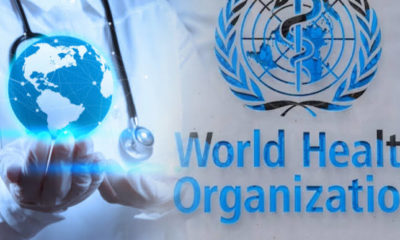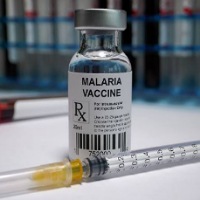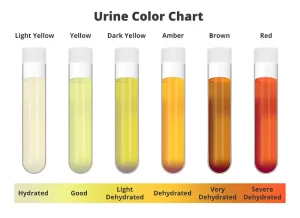Health
Banning Tobacco Sales Could Save 1.2m Lives By 2095 – WHO
A new study from the World Health Organization (WHO) underscores the alarming connection between smoking and lung cancer, the leading cause of cancer-related deaths globally.
The research reveals that smoking accounts for approximately 85% of all lung cancer cases and warns that nearly three million lung cancer deaths could occur among those born between 2006 and 2010 if current trends persist.
Read Also: Emefiele’s Naira Redesign: Witness Uncovers Alleged Missteps, Political Influences
The findings, published in The Lancet Public Health, indicate that implementing a ban on tobacco sales for this generation—approximately 650 million individuals—could prevent about 1.2 million deaths by 2095.
This study is among the first to evaluate the potential impact of creating a tobacco-free generation and draws on data from 185 countries.
The research highlights significant disparities in preventable lung cancer deaths based on gender.
It found that over 45% of lung cancer deaths among men could be avoided, while nearly 31% could be prevented among women.
IARC researcher and co-author Isabelle Soerjomataram noted that the disparity is largely due to targeted marketing by the tobacco industry over the past decades.
Interestingly, the study also suggests that in regions like North America and parts of Europe, ending tobacco sales could lead to more preventable deaths among women than men.
In Western Europe, 78% of potential deaths among women could be averted, compared to nearly 75% among men in Central and Eastern Europe.
While the study offers a glimmer of hope, it cautions that not all lung cancer deaths can be prevented through tobacco sales bans alone.
Other risk factors, such as air pollution and second-hand smoke exposure, also significantly contribute to lung cancer rates.
Several countries have already implemented tobacco-free generation initiatives, including New Zealand, which became the first nation to ban cigarette sales to individuals born after 2008.
However, the new conservative government in New Zealand has announced plans to repeal this measure.
Conversely, the UK’s new Labour government is supportive of a similar initiative that restricts cigarette sales to anyone born after January 2009.
Despite the promising implications of tobacco-free generation policies, the authors of the IARC study stress that these measures must be part of a broader strategy to combat the health crisis posed by tobacco.
They advocate for additional approaches, such as increasing cigarette taxes, creating more smoke-free environments, and providing enhanced support for individuals looking to quit smoking.
As lung cancer remains a leading health challenge, this study highlights the urgent need for comprehensive tobacco control policies to protect future generations and reduce the burden of this deadly disease.
Health
Cholera Outbreak In Sokoto Claims 25 Lives, Over 1,000 Infected
A cholera outbreak in Sokoto State has claimed the lives of at least 25 people, with 1,160 confirmed cases recorded in three local government areas.
The state Commissioner for Health, Dr. Asabe Balarabe, disclosed this during a press briefing on Monday.
She revealed that 15 patients are currently receiving treatment for the disease, which was confirmed through laboratory tests.
READ MORE: Tinubu Joins World Leaders In Renewed Fight Against Hunger, poverty
“Out of 1,160 people affected by the outbreak, 25 have succumbed to the disease,” Dr. Balarabe said.
In response, the state government has ramped up efforts to curtail the spread of the infection, which is caused by consuming contaminated water or food.
“The state rescue teams are collaborating with the government to manage and forestall further spread of the dreaded disease,” the commissioner stated.
To address the crisis, the government has ordered the immediate purchase and distribution of essential drugs free of charge to all 18 local government areas of the state.
Dr. Balarabe urged residents to maintain proper hygiene and seek medical attention immediately if they exhibit symptoms such as diarrhea and vomiting.
The outbreak has highlighted the need for improved sanitation and clean water access in affected communities, as health authorities work to contain the spread and prevent further fatalities.
Health
Don’t Ignore These Hidden Health Clues In Your Urine
Your body has subtle ways of communicating essential information about your health—and sometimes, one of the simplest clues is the color of your urine.
Urine, which is about 95% water, forms when your kidneys filter out waste and excess water from your blood. Normally ranging from light yellow to amber, it provides insights into your hydration and more.
Changes in urine color, smell, or frequency can serve as early indicators of potential health conditions.
While most color shifts are harmless and temporary, persistent changes could suggest a more significant issue.
“Tracking these signs can be a simple way to monitor hydration and potentially catch health issues early,” says Dr. Jenna Lewis, a nephrologist at Healthline Clinic.
Here’s a guide to what different urine colors might mean for your health:
Clear or Very Light Yellow
This typically shows you’re well-hydrated. While generally a positive sign, consistently clear urine could indicate overhydration, which may lower salt levels in your body.
Light to Medium Yellow
Often considered the “healthy” zone, this shade reflects good hydration without excess water intake.
Dark Yellow to Amber
A darker shade often indicates a need for more water. This is common in the morning or after exercise and can usually be resolved by drinking more fluids.
Orange
Dehydration may lead to orange urine, but other factors can also contribute. High levels of beta-carotene (found in foods like carrots) or certain medications can turn urine orange.
Persistent orange urine might signal liver or bile duct issues, so consult a doctor if it persists.
Pink or Red
While foods like beets or berries can cause pinkish urine, this color can also indicate the presence of blood, possibly signaling kidney problems, infections, or kidney stones. If diet isn’t the cause, seek medical advice.
Brown or Cola-Colored
This shade may suggest dehydration or, in some cases, a more severe issue. Brown urine can indicate liver or kidney problems, or a condition called rhabdomyolysis, where muscle tissue breaks down. Persistent brown urine warrants a visit to the doctor.
Blue or Green
Rarely, certain medications, dyes, or health conditions can produce blue or green urine. While often harmless, persistent blue or green urine should be evaluated by a healthcare provider.
Cloudy or Milky
Cloudy urine may indicate an infection or excess minerals. It could be a sign of a urinary tract infection, kidney stones, or mild dehydration. Sometimes, excess proteins or fats may also cause this cloudiness.
Most changes in urine color are temporary, especially when related to hydration, diet, or harmless compounds. However, experts agree that if unusual colors or symptoms persist, a consultation with a healthcare provider is wise.
“Listening to your body’s signals, even through something as simple as urine color, can offer valuable insights into your overall health,” adds Dr. Lewis.
By keeping an eye on these colors, you can stay on top of hydration and potentially catch health issues early.
Health
JUST IN: JOHESU Launches Nationwide Strike Over Unresolved Demands
Members of the Joint Health Sector Unions and Assembly of Health Care Professionals (JOHESU) have announced a seven-day warning strike set to begin at midnight on Friday.
This action follows a 15-day notice of industrial action issued to the Federal Government.
READ MORE:Russia Battles Inflation, Raises Key Interest Rate To 21%
Addressing journalists in Abuja, JOHESU’s national chairman, Kabiru Minjibir, outlined the union’s primary demands, emphasizing a need for immediate action to address ongoing concerns affecting healthcare workers across the nation.
Key demands include the urgent implementation of the consolidated health salary structure and the payment of a 25 percent review of arrears from June to December 2023.
The union is also calling for an upward review of the retirement age for healthcare workers, a tax waiver on healthcare workers’ allowances, and the immediate disbursement of COVID-19 inducement hazard allowances.
Minjibir urged all union members nationwide to adhere to the strike directive, underscoring that compliance would be essential in pushing for their demands.
Details shortly………….

















